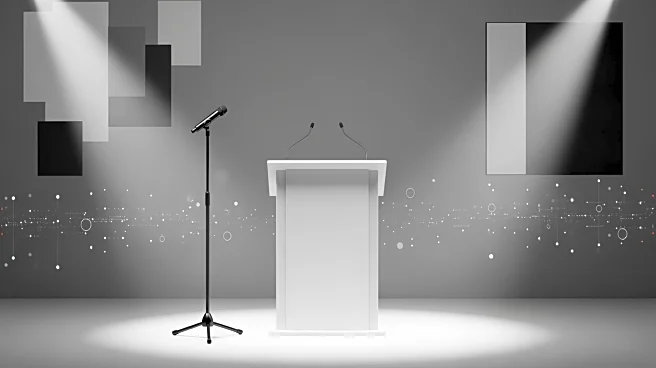Rapid Read • 8 min read
Badar Khan Suri, a postdoctoral fellow at Georgetown University, has reached a settlement with the Trump administration allowing him to return to work while he continues to fight deportation. The administration had accused Suri of promoting Hamas and attempted to deport him, but the agreement reinstates his legal status and permits him to resume his duties at Georgetown. This settlement averts a scheduled court hearing where Suri's legal team planned to argue for the reinstatement of his legal records in the Department of Homeland Security database. Suri, an Indian national, was previously detained in Texas as part of a broader crackdown on pro-Palestinian demonstrators, raising concerns about free speech on campuses.
AD
The case of Badar Khan Suri highlights ongoing tensions between immigration enforcement and academic freedom in the U.S. The Trump administration's actions have sparked fears of a chilling effect on free speech, particularly concerning pro-Palestinian advocacy. This settlement may set a precedent for other academics facing similar challenges, impacting how universities and scholars navigate political expression and immigration policies. The broader implications could affect U.S. academic institutions' ability to attract international talent, potentially influencing research and educational diversity.
As Suri's legal battle continues, the case may influence future court decisions regarding the intersection of immigration enforcement and academic freedom. Universities and civil rights groups are likely to monitor the situation closely, advocating for protections against politically motivated deportations. The outcome could prompt policy reviews and adjustments in how immigration cases involving academics are handled, potentially leading to legislative or administrative changes.
The case raises ethical questions about the balance between national security and individual rights, particularly in academic settings. It underscores the potential for political bias in immigration enforcement and the need for transparent and fair processes. Long-term, this situation may drive discussions on the role of academic institutions in safeguarding free speech and supporting international scholars.
AD
More Stories You Might Enjoy











